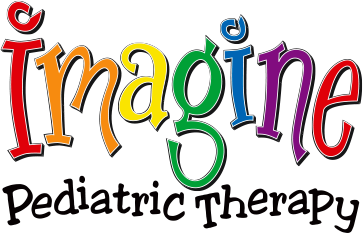Speech Therapy Services will assess concerns you may have about your child in any of the following areas...
Social Interaction
[age 3 to 24 months] Have you noticed your baby isn't smiling or interacting with others by 3 months of age? It could be a concern if your infant doesn't babble (between 4 and 7 months), only makes a few sounds or gestures, like pointing (between 7 and 12 months), or they do not seem to understand what you or others are saying (between 7 and 24 months).
Words or Gestures
[age 12 to 18 months] Does it seem like your toddler only makes a few sounds, words, or gestures? Most kids are starting to say a few single words between a year and 18 months. If your child isn't saying anything, or has an extremely limited repertoire of words, he or she may have a speech disorder.
Unintelligibility.
[age 18 to 24 months] Are you one of a few people who can understand what your child is saying? As they approach 2 years of age, speech should not be too difficult for others to decipher, especially if they are a pretty familiar listener.
Phonological Process Concerns
[3 to 8 years] Phonological Process is just a fancy word for those simplified "words" your child may be coming up with as they learn to talk. These are perfectly normal and really cute... "pasketti" anyone? However, if your child is still using them beyond the age when most children have stopped using them or you find them using really strange substitutions than what you would expect, it could be a red flag. You can check out this phonological process guide to see what age these patterns should be eliminated by.
Articulation Issues
[age 2 to 8 years] Is it proving extra difficult for your child to make sounds and say words? Some sounds are harder to make than others. Don't be too concerned if a "K" or a "G" sound doesn't roll of the tongue before age 2, but if your 2-1/2 year old is still having trouble with easier sounds like "P", "B", and "M". Take a look at this articulation milestones handout to see if your child has their age appropriate sounds.
Feeding Concerns
[age 0 to 5 years] Are you noticing some eating and/or drinking difficulties? Do they excessively drool or chew food in the front of their mouth? Maybe they seem really tired after eating and they are becoming extremely picky with certain foods or textures. Feeding problems are not uncommon, but if your child is falling too far behind these oral motor milestones, it can lead to even greater difficulties in the future.
Word Combinations
[age 2 to 3 years] Is your child still struggling to combine 2 or more words together? Usually, children begin combining two or more words together to make "sentences" at about 18 months. By this age, your child should be able to to say things like "My ball." or "Come Mama."
Associative Behaviors
If your child's speech development seems delayed, are they exhibiting any of the following behaviors? Sometimes language delays occur along with these behaviors.
- Doesn't cuddle like other children.
- Doesn't return a happy smile back to you.
- Doesn't seem to notice if you are in the room.
- Doesn't seem to notice certain noises (for example, seems to hear a car horn or a cat's meow but not when you call his or her name).
- Acts as if he or she is in his or her own world.
- Prefers to play alone; seems to "tune others out".
- Doesn't seem interested in or play with toys but likes to play with objects in the house.
- Has intense interest in objects young children are not usually interested in (for example, would rather carry around a flashlight or ballpoint pen than a stuffed animal or favorite blanket).
- Can say the ABCs, numbers, or words to TV jingles but can't use words to ask for things he or she wants.
- Doesn't seem to be afraid of anything.
- Doesn't seem to feel pain in a typical fashion.
- Uses words or phrases that are unusual for the situation or repeats scripts from TV.
We can help!
Remember that all children are different and develop these skill sets at their own pace. However, if you think your child may be struggling with adopting some of the skill areas described above, don't worry, we can help you! If you have concerns about other areas not described above... see below.
Physical Therapy Concerns?
Do you notice your child struggling with their physical development and motor skills? Have problems with physical activities come up following an injury or illness? Do they have a disability or health condition causing delays?
Our Physical Therapy services are specialized to handle these difficulties as well as a wide range of conditions outlined here... see more
Our Physical Therapy services are specialized to handle these difficulties as well as a wide range of conditions outlined here... see more
Occupational Therapy Concerns?
Do you notice your child having difficulties with day-to-day activities at home, school, or in the community? Do they experience challenges that do not affect most typically developing children?
Our Occupational Therapy services support your family when you experience difficulties in these areas and more as outlined here... see more
Our Occupational Therapy services support your family when you experience difficulties in these areas and more as outlined here... see more
